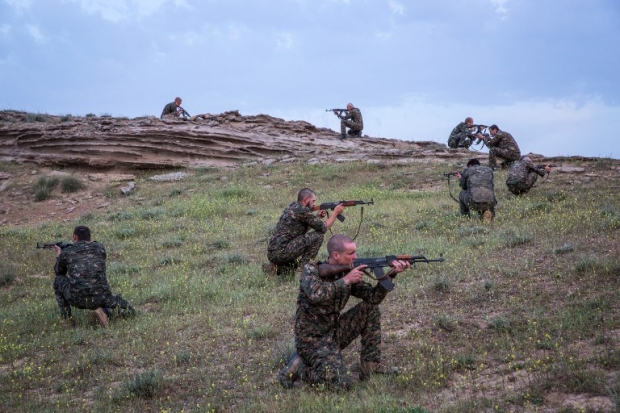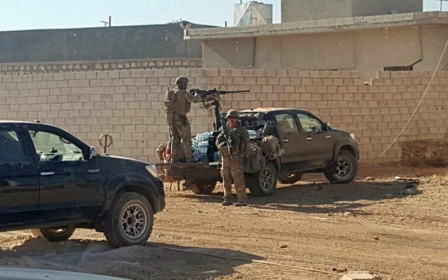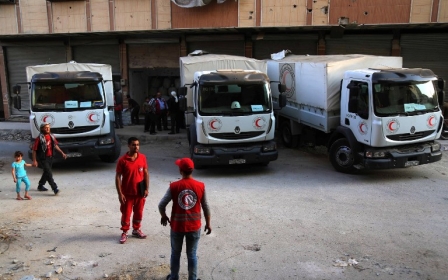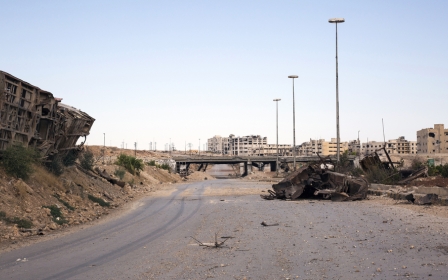Why were US special forces run out of al-Rai - and why does it matter?
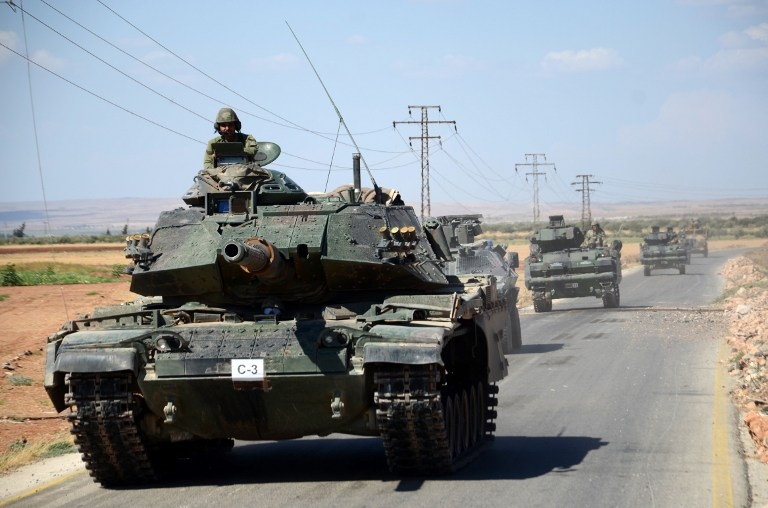
Footage that went viral on social media on Friday showed US special forces being kicked out by Turkish-backed rebels in al-Rai, a town in northern Syria. It appears to show a crowd of Syrian rebel fighters chanting anti-US slogans and threatening “slaughter” as vehicles drive out of the area.
'The US cannot continue to support everyone that is fighting us, including Russia and the Kurds, and expect us to be happy to work with them': Syrian rebel
It would be the first evidence that US special forces are cooperating directly with Turkish troops in their battle against Islamic State, and it raises serious questions about US policy in Syria.
The US troops are not wearing traditional uniforms, but they carry US weapons and wear the distinctive round helmets favored by US special forces. Reuters has confirmed that “five or six” US troops entered al-Rai, close to the Turkish border, on 16 September as part of operations to coordinate air strikes against IS.
“The five or six US military personnel were then forced to withdraw back towards the Turkish border after Syrian rebels protested against their presence in the town,” a senior rebel source told Reuters.
Major flaws accentuated
The tense incident illustrates flaws in US policy on Syria and the complexity of alliances and enmities in Syria, where many of America’s allies are fighting each other. It also highlights the extent of distrust and anger towards the US among Syrian rebels, some of whom have enjoyed US backing.
Turkey is deeply worried that advances by Syrian Kurdish fighters will embolden Kurdish militants in their own southeast, where Turkey has been fighting a three-decade insurgency led by the outlawed Kurdistan Workers' Party (PKK).
It is still not clear where the US forces who left al-Rai went, but sources told Reuters that the troops were forced to withdraw back towards that same Turkish border which Euphrates Shield was set up to protect.
Rebel rebellion
The context of why some rebels were hostile to US special forces in the area matters as much as the details of what happened.
Emile Hokayem, a Middle East analyst at the International Institute for Strategic Studies, has blamed the damaging behaviour by rebels on Washington's profoundly flawed policy in northern Syria. This behaviour, he argues, is the result of a policy that focuses blindly on supporting Kurdish-led forces in the fight against IS, despite the potentially damaging consequences.
Kurdish-led military successes against IS in northern Syria have also created tensions between Arab and Kurdish communities. Kurdish forces have been accused of violations against Arab communities in areas seized from IS, which has led to feelings of fear and mistrust among Syrian Arabs about the Kurdish-led Syrian Democratic Forces alliance. There have also been clashes between Turkish-allied forces and the Kurds in different areas in Syria.
Russia and the US, meanwhile, recently reached an agreement to reduce violence in Syria and to conduct joint operations targeting the Fateh al-Sham Front, the rebranded former al-Qaeda affiliate al-Nusra Front. Rebel groups, though, were not happy with the agreement to say the least. As they see it, the agreement tips the military balance in favour of the Assad regime. It also increases Washington's cooperation with Moscow, a key ally of the Syrian regime.
“Notwithstanding damage caused by all-cards-in relations with YPG [the mostly Kurdish People's Protection Units], just imagine the consequences of joint military action with Russia,” commented Charles Lister, a senior fellow at the Middle East Institute.
Friends with everyone doesn't work
Rebel fighters have tried to explain this hostile behaviour, accusing the US of trying to be friends with everyone, even deadly enemies, in Syria.
“The US cannot continue to support everyone that is fighting us, including Russia and the Kurds, and expect us to be happy to work with them," said a fighter with Nour al-Dien al-Zanki on condition of anonymity.
"They are supporting the Kurds, who are fighting us everywhere in Aleppo. They are allowing the Syrian regime to use their airforce to slaughter us on a daily basis. Now, they are planning to cooperate military with Russia to fight the groups that are fighting Assad, so that Assad can win. They should understand that their actions also have consequences.”
Now there are unconfirmed reports that US special forces are back in al-Rai after Turkish mediation, and with the protection of Turkish and rebel forces.
However, this incident has already thrown into sharp relief the flaws in US policy on Syria. It must revise this immediately in order to avoid creating future conflicts in an already complex war.
- Haid Haid is a Syrian researcher who focuses on security policy, conflict resolution and Kurdish and Islamist movements. He previously worked as a Programme Manager on Syria and Iraq at the Heinrich Böll Stiftung-Middle East office in Beirut. He has also been a senior community services-protection assistant at UNHCR's Damascus office. He holds an MA in social development.
The views expressed in this article belong to the author and do not necessarily reflect the editorial policy of Middle East Eye.
Photo: Turkish troops drive through the northern Syrian town of al-Rai earlier this month (AFP)
New MEE newsletter: Jerusalem Dispatch
Sign up to get the latest insights and analysis on Israel-Palestine, alongside Turkey Unpacked and other MEE newsletters
Middle East Eye delivers independent and unrivalled coverage and analysis of the Middle East, North Africa and beyond. To learn more about republishing this content and the associated fees, please fill out this form. More about MEE can be found here.



